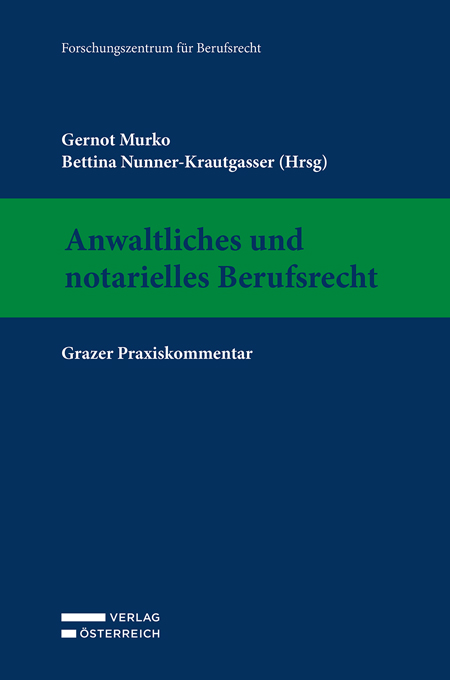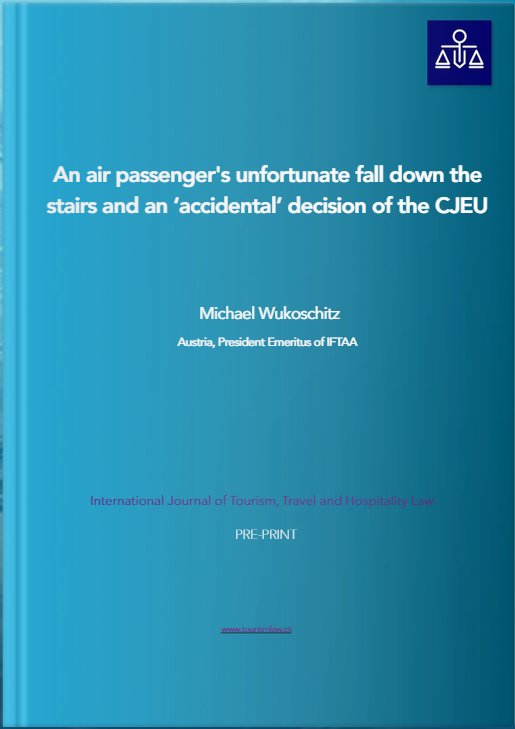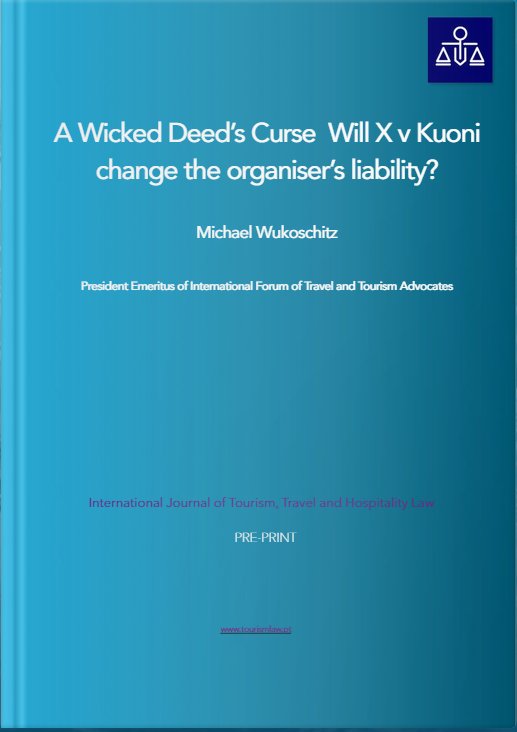Archive
The fall of a passenger and a CJEU misstep
Following a referral by the Korneuburg Regional Court, the CJEU ruled in C-589/20 that a passenger’s fall “for no ascertainable reason” on a mobile staircase provided for passenger disembarkation, falls under the term “accident” as defined in Art 17 of the Montreal Convention (MC).
In his review of the ruling in the International Journal of Tourism, Travel and Hospitaliyt Law (IJTTHL) Michael Wukoschitz sets out the case law of national courts of various jurisdictions (including non-European courts) on the definition of an accident under the MC, which until now has always required an external impact on the passenger. However, if the reason for the fall is “non-ascertainable”, there is no proof of such an impact. Although the Advocate General had also expressly referred to this requirement in his opinion, for the CJEU an “unforeseen, harmful and involuntary event” is sufficient for the existence of an accident – apparently regardless of what triggered it. The CJEU does not explain why it departs from decades of established case law in the MC Member States, leaving the practitioner rather perplexed.
“Grazer Praxiskommentar” on the professional law of attorneys and notaries public

Professional law is of considerable importance especially in the classical legal professions of attorneys and notaries. The newly published “Grazer Praxiskommentar” covers all essential professional regulations for attorneys and notaries. The commentary, published by Verlag Österreich and edited by Gernot Murko and Bettina Nunner-Krautgasser, is dedicated to all current legal issues concerning the exercise of the profession after the BRÄG 2022, taking into account the case law of the highest courts. Practical checklists and tips complete the work, which should not be missing in any lawyer’s or notary’s office. Petra Cernochova (together with Bernhard Fink) is responsible for the commentary on the Lawyers’ Bar Exam Act (RAPG) as well as §§ 13-16 and 22-23 of the Code of Professional Conduct for Attorneys 2015 (RL-BA 2015) concerning financial governance and professional fees as well as the assumption of substitutions for domestic and foreign lawyers.
Comment available here>>
Analysis of a decision on rape under travel law
In the United Kingdom, the case of X v Kuoni concerning the rape of a traveller by an electrician employed by the hotel, in which the ECJ ruled for the first time on the concept of a supplier of services and on liability for injury caused by a hotel employee, has caused a great stir and will probably have a lasting influence on case law there:
The UK Supreme Court concluded that there had been a breach of duty in the provision of travel services attributable to the package organiser and that the package organiser was therefore liable for the damages associated with the rape.
In a contribution to the new “International Journal of Tourism, Travel and Hospitality Law”, Michael Wukoschitz examines whether this decision will also change the liability of tour operators in the EU (of which the UK is no longer a member). The analysis takes into account that the CJEU decision was issued in the context of the Package Travel Directive 1990, which has since been replaced by the Package Travel Directive 2015, the liability rules of which differ significantly from the previous legal situation.
A pre-print version of the article is available online here>>.
Athens Convention: Cruise Operator not liable for Passenger’s Campylobacter Infection
On the 10th day of a two-week Caribbean cruise in February 2020, a passenger fell ill with a gastrointestinal infection caused by the pathogen campylobacter. The court of first instance found that there had been no accumulation of such infections on board during the cruise and that all hygiene rules had been observed in the catering area. Campylobacter infections in humans are usually food-associated and the court of first instance considered an infection of the passengers on the cruise ship to be quite probable.
The court of first instance awarded a price reduction, damages for pain and suffering and compensation for lost holiday enjoyment for the impairment of the cruise due to the infection. The Commercial Court of Vienna granted the cruise operator’s appeal: Firstly, the standard standard of proof in the ZPO was a high degree of probability, so that the evidence of causality had not been provided on the basis of the mere simple probability established by the court of first instance. Secondly, the liability of the cruise operator was to be examined according to Art 3 of the Athens Convention 2002 and therefore required (in the absence of a shipping event causing the damage) a fault to be proven by the plaintiff, which was lacking due to the established compliance with all hygiene rules (HG Wien 17.02.2022, 60 R 136/21m).
Although the cruise market has experienced a real boom in recent years (at least before Corona), court decisions on liability for the carriage of passengers by sea under the Athens Convention are rare. The ruling that a claim for price reduction in the event of illness is also subject to the conditions and limitations of the Athens Convention is therefore a valuable clarification for the industry.


